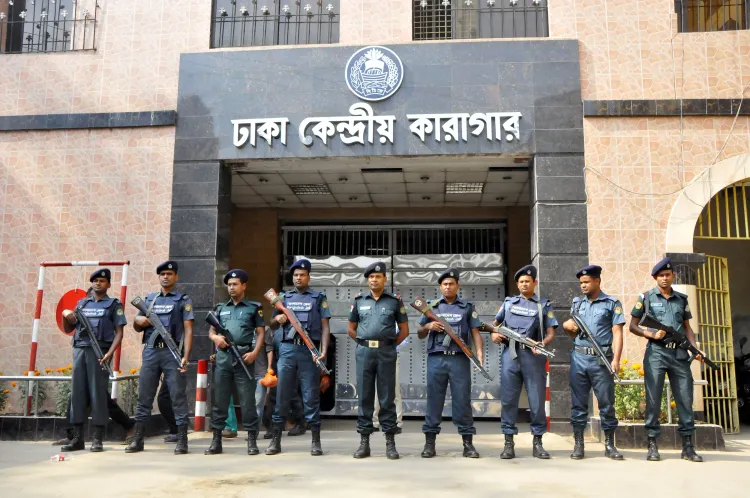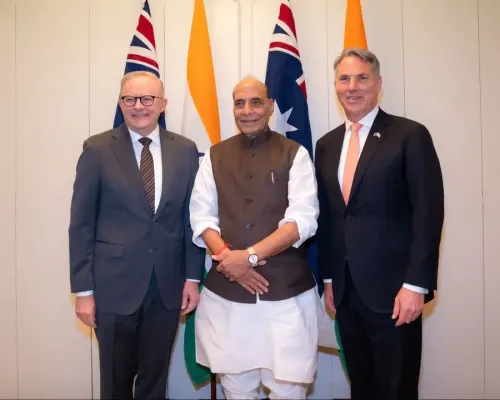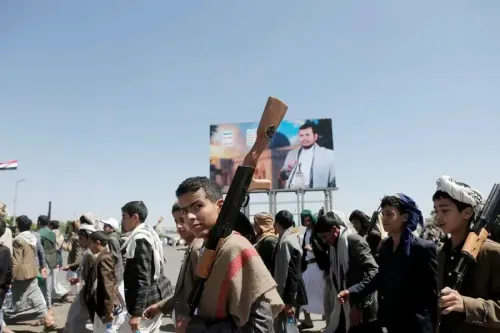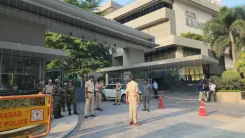Why is the Awami League Criticizing Yunus Government Over 2004 Grenade Attack Acquittals?

Synopsis
Key Takeaways
- Awami League criticizes Yunus government for acquittal.
- The 2004 grenade attack resulted in 24 deaths.
- Claims of political collusion with militants.
- Over 500 people injured during the attack.
- Anniversary of the attack observed annually in Bangladesh.
Dhaka, Aug 20 (NationPress) The Awami League of Bangladesh has strongly criticized the interim government led by Muhammad Yunus for the decision to exonerate all individuals convicted in the devastating grenade attack of August 2004, which resulted in the deaths of 24 individuals and left hundreds injured.
In a statement, the party, which is headed by former Prime Minister Sheikh Hasina, accused the Yunus administration of demonstrating "direct collusion with militants and terrorists," as well as showing "active support for extremism."
The Awami League highlighted that it took 14 long years for the Bangladeshi Court to reach a verdict in the August 21 grenade attack case, sentencing 19 of the 49 accused to death, with another 19 receiving life sentences, and the remaining 11 sentenced to varying terms of imprisonment. However, they alleged that this ruling was undermined by the actions of the "illegal usurpers and fascist Yunus group," who absolved all convicted parties.
Furthermore, the Awami League maintained that the August 21 grenade attack was a continuation of the brutal killings that occurred on August 15, 1975, which aimed to eradicate the lineage and ideals of Bangabandhu Sheikh Mujibur Rahman by targeting his daughter, Sheikh Hasina. They characterized this attack as a "despicable conspiracy" orchestrated by the alliance of the Bangladesh Nationalist Party and Jamaat-e-Islami, whom they identified as the principal political supporters of "militant and terrorist factions" in the nation.
According to the Awami League, the attack was planned by Tarique Rahman, the son of then Prime Minister and BNP Chairperson Khaleda Zia, alongside war criminals and leaders from Jamaat, including Matiur Rahman Nizami and Ali Ahsan Mohammad Mujahid, as well as other anti-Liberation reactionary groups.
"On August 21, 2004, a militant faction, utilizing state apparatus, executed a brutal grenade attack outside the Awami League's central office on 23 Bangabandhu Avenue during a rally against terrorism, extremism, and corruption. The Awami League was the direct target of this heinous act, resulting in the martyrdom of 22 leaders and activists, including Ivy Rahman, the Women’s Affairs Secretary of the Awami League and spouse of the late President Zillur Rahman," the Awami League stated.
The party emphasized that over 500 leaders, activists, and journalists from both print and electronic media were injured due to grenade shrapnel, with many remaining in significant pain from their injuries.
"The type of brutal massacre conducted by the BNP-Jamaat coalition government at a political gathering, with both direct and indirect state support, is uncommon in global history. The Bengali nation will forever remember that dark day. Since 2004, the people of Bangladesh have commemorated August 21 through various programs against terrorism and extremism, honoring the victims," the Awami League expressed.
The party has scheduled a series of programs for Thursday to honor the victims of the August 21, 2004 grenade attack, marking it as one of the most horrific and brutal events in the history of the nation.








